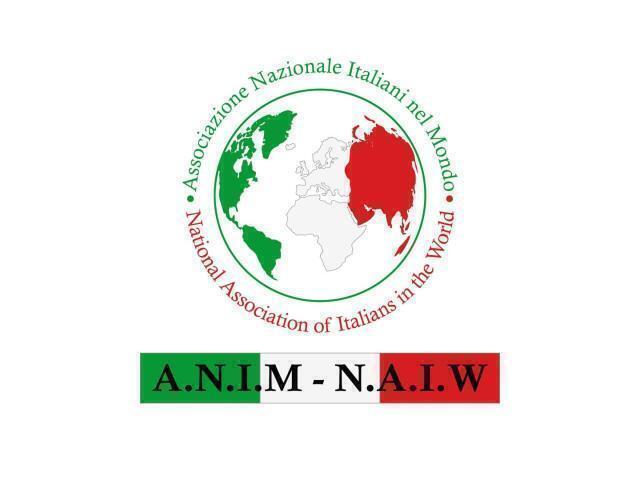European Criminal Court: A Revolutionary Initiative to Combat Global Corruption and Transnational Crime
The European Criminal Court (ECC), an ambitious project spearheaded by the European Centre for Information Policy and Security (ECIPS), is set to transform the landscape of criminal justice across the European Union. Currently in its developmental phase, the ECC aims to establish a robust judicial framework to address and investigate severe criminal activities, particularly focusing on global corruption.
Purpose and Vision
The primary objective of the ECC is to enhance the European Union’s capacity to deliver justice by creating a specialized court dedicated to handling grave criminal offenses that transcend national borders. This initiative is a response to the pressing need for a coordinated and effective criminal justice system capable of addressing complex crimes such as corruption, organized crime, terrorism, and human trafficking.
Key Objectives of the European Criminal Court
Establishing a Pan-European Judicial Body
One of the cornerstone objectives of the ECC is to establish a court with jurisdiction over serious criminal matters that affect multiple EU member states. This would provide a centralized institution for prosecuting and adjudicating transnational crimes, ensuring that perpetrators are brought to justice regardless of national boundaries. The ECC aims to fill the gaps left by national judicial systems that often lack the resources or jurisdictional reach to combat such crimes independently.
Combatting Global Corruption
The ECC is poised to take a leading role in investigating and prosecuting corruption cases that impact the EU and its member states. Corruption remains one of the most pervasive and damaging forms of crime, undermining trust in public institutions and stunting economic growth. By collaborating with national and international anti-corruption entities, the ECC aims to improve the effectiveness of anti-corruption measures, ensuring that no stone is left unturned in the fight against this insidious crime.
Promoting Legal Cooperation
Another key objective of the ECC is to enhance legal cooperation among EU member states in criminal justice matters. The ECC will work towards harmonizing legal standards and procedures, ensuring consistent and fair outcomes across the EU. This harmonization is crucial in addressing the disparities and inconsistencies that currently exist between different national legal systems, which can hinder the effective prosecution of transnational crimes.
Participation and Support
The ECC invites participation from all sectors of the legal profession, including lawyers, judges, academics, and policymakers. The involvement of these professionals is critical in developing and implementing a more efficient and unified criminal justice system in Europe. By joining this initiative, legal professionals and supportive organizations can contribute to shaping a judicial body that is equipped to tackle the challenges posed by sophisticated criminal activities in an increasingly globalized world.
Rationale Behind the European Criminal Court
The rationale for the establishment of the ECC is clear. As globalization continues to advance, criminal activities have become more sophisticated and widespread. National judicial systems often find themselves ill-equipped to deal with the complexities and scale of these crimes. The ECC aims to bridge these gaps by providing a comprehensive and coordinated approach to criminal justice.
Transnational crimes such as organized crime, terrorism, and human trafficking pose significant threats to the security and stability of the EU. These crimes often involve networks that operate across multiple countries, making it difficult for individual national legal systems to combat them effectively. The ECC, with its pan-European jurisdiction, will be able to address these challenges head-on, ensuring that justice is served and that the rule of law is upheld across the continent.
A Major Advancement in the Fight Against Transnational Crime
The European Criminal Court signifies a major advancement in the fight against global corruption and other transnational crimes. By providing a centralized and coordinated approach to criminal justice, the ECC seeks to enhance the EU’s ability to respond decisively to criminal threats. This initiative is not just about addressing the crimes themselves, but also about protecting the integrity of the European Union and its member states.
The establishment of the ECC represents a commitment to upholding the rule of law and ensuring that justice is served, regardless of the complexity or scale of the crime. This commitment is crucial in maintaining public trust in the criminal justice system and in the institutions of the EU.
The European Criminal Court is poised to become a cornerstone of the EU’s criminal justice system, providing a much-needed platform for the investigation and prosecution of serious transnational crimes. As the ECC continues to develop, the support and participation of legal professionals and organizations across Europe will be vital in ensuring its success.
The ECC’s mission to combat global corruption, enhance legal cooperation, and establish a pan-European judicial body underscores the need for a coordinated and effective approach to criminal justice. By addressing the challenges posed by sophisticated criminal activities in an increasingly interconnected world, the ECC will play a crucial role in upholding the rule of law and protecting the integrity of the European Union.
Contact Information
For more information and to express your support or interest in participating in the European Criminal Court initiative, please contact the European Centre for Information Policy and Security (ECIPS).
This press article outlines the foundational vision of the European Criminal Court project, inviting collaboration among legal professionals and supporters within the European Union. As the ECC moves forward, the collective efforts of all stakeholders will be essential in building a judicial body capable of delivering justice efficiently and effectively across Europe.
By ECIPS PRESS
For European Centre For Information Policy and Security ECIPS Federal Approved by Royal Decree WL22/16.594 Public Utility by Treaty EST124 Counsel of Europe.








